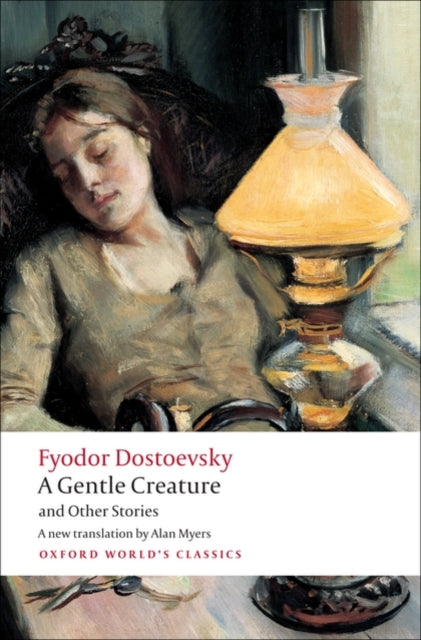Rudolf Steiner Bookshop
A Gentle Creature and Other Stories
A Gentle Creature and Other Stories
Pickup available at Rudolf Steiner Bookshop.
Usually ready in 1 hour
Fyodor Dostoevsky (author)
Translated by Alan Myers
n the stories in this volume Dostoevsky explores both the figure of the dreamer divorced from reality and also his own ambiguous attitude to utopianism, themes central to many of his great novels.
In White Nights the apparent idyll of the dreamer's romantic fantasies disguises profound loneliness and estrangement from 'living life'. Despite his sentimental friendship with Nastenka, his final withdrawal into the world of the imagination anticipates the retreat into the 'underground' of many of Dostoevsky's later intellectual heroes. A Gentle Creature and The Dream of a Ridiculous Man show how such withdrawal from reality can end in spiritual desolation and moral indifference and how, in Dostoevsky's view, the tragedy of the alienated individual can be resolved only by the rediscovery of a sense of compassion and responsibility towards fellow human beings.
This new translation captures the power and lyricism of Dostoevsky's writing, while the introduction examines the stories in relation to one another and to his novels.
Fyodor Mikhailovich Dostoyevsky (/ˌdɒstəˈjɛfski, ˌdʌs-/; Russian: Фёдор Миха́йлович Достое́вский; IPA: [ˈfʲɵdər mʲɪˈxajləvʲɪtɕ dəstɐˈjɛfskʲɪj]; 11 November 1821 – 9 February 1881), sometimes transliterated Dostoevsky, was a Russian novelist, short story writer, essayist, journalist and philosopher. Dostoyevsky's literary works explore human psychology in the troubled political, social, and spiritual atmosphere of 19th-century Russia. Many of his works are marked by a preoccupation with Christianity, explored through the prism of the individual confronted with life's hardships and beauty.
He began writing in his 20s, and his first novel, Poor Folk, was published in 1846 when he was 25. His major works include Crime and Punishment (1866), The Idiot (1869), Demons (1872) and The Brothers Karamazov (1880). His output consists of 11 novels, three novellas, 17 short novels and numerous other works. Many literary critics rate him as one of the greatest psychologists in world literature. His 1864 novella Notes from Underground is considered to be one of the first works of existentialist literature.
Born in Moscow in 1821, Dostoyevsky was introduced to literature at an early age through fairy tales and legends, and through books by Russian and foreign authors. His mother died in 1837, when he was 15, and around the same time he left school to enter the Nikolayev Military Engineering Institute. After graduating, he worked as an engineer and briefly enjoyed a lavish lifestyle, translating books to earn extra money. In the mid-1840s he wrote his first novel, Poor Folk, which gained him entry into St. Petersburg's literary circles.
In the following years, Dostoyevsky worked as a journalist, publishing and editing several magazines of his own and later A Writer's Diary, a collection of his writings. He began to travel around western Europe and developed a gambling addiction, which led to financial hardship. For a time, he had to beg for money, but he eventually became one of the most widely read and highly regarded Russian writers. His books have been translated into more than 170 languages. Dostoyevsky influenced a multitude of writers and philosophers, from Anton Chekhov and Ernest Hemingway to Friedrich Nietzsche and Jean-Paul Sartre.
Publisher : OUP Oxford; Reissue edition (23 April 2009)
Paperback : 132 pages
ISBN-13 : 9780199555086
Dimensions : 19.3 x 12.7 x 1.02 cm

